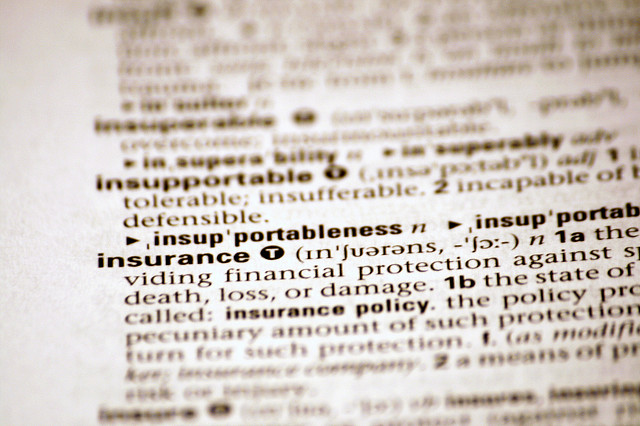On April 11, the D.C. Circuit Court of Appeals denied a petition by SeaWorld, which was seeking to overturn a citation and penalty issued by the Occupational Safety and Health Administration (OSHA) after a killer whale mauled and drowned one of the park’s trainers during a show (Seaworld of Florida, LLC v. Perez). OSHA had cited SeaWorld for violating the OSH Act’s Employer’s General Duty Clause, by failing to provide a workplace free of “free from recognized hazards that are causing or are likely to cause death or serious physical harm.” This decision reminds us that this often-neglected element of OSH compliance serves important worker safety goals.
Audit, Compliance and Risk Blog
Tags: Business & Legal, Employer Best Practices, Health & Safety, OSHA, Employee Rights, Environmental risks, EHS
SEC Announces Additional $150,000 Payment to Recipient of First Whistleblower Award
Posted by STP Editorial Team on Thu, Apr 24, 2014
Tags: Corporate Governance, Business & Legal, SEC, Employer Best Practices, Employee Rights
Tags: Corporate Governance, Business & Legal, SEC
Understanding Insurance Law: ERISA Has No Limitation of Suit Provision
Posted by Barry Zalma on Wed, Apr 16, 2014
Bridget Gordon (“Gordon”) appealed a district court’s summary judgment in favor of Deloitte & Touche, LLP Group Long Term Disability Plan (the “Plan”), which is insured by Metropolitan Life Insurance Company (“MetLife”). The summary judgment was granted based on Gordon’s failure to file the action within the applicable limitation period. In Bridget Gordon, Plaintiff v. Deloitte & Touche, LLP Group Long Term Disability Plan, No. 12–55114, United States Court of Appeals, Ninth Circuit (April 11, 2014) the Ninth Circuit Court of Appeal was called upon to determine what statute of limitation, if any, applies to an ERISA claim.
Tags: disability claim denied, Corporate Governance, Business & Legal, Employer Best Practices, Employee Rights, Insurance, Insurance Claims, Disability benefits
Workers’ Compensation in California: What If You Get Hurt on the Job?
Posted by STP Editorial Team on Mon, Apr 14, 2014
The workers’ compensation system is based on a trade-off between employers and employees. Employees are entitled to receive prompt, effective medical treatment for on-the-job injuries or illnesses no matter who is at fault and, in return, are therefore prevented from suing employers over those injuries. As a result, California employers, as in other states, are required by law to have workers’ compensation insurance, even if they have only one employee. And, if employees get hurt or sick because of work, the employer is required to pay for workers’ compensation benefits. Workers’ comp insurance provides six basic benefits: medical care, temporary disability benefits, permanent disability benefits, supplemental job displacement benefits, or vocational rehabilitation and death benefits.
Tags: Corporate Governance, Business & Legal, Employer Best Practices, Health & Safety, Employee Rights, California Legislation, EHS, Disability benefits
EPA and Corps of Engineers Redefining “Waters of the United States”
Posted by Jon Elliott on Wed, Apr 09, 2014
The Clean Water Act (CWA) provides federal agencies with authority to regulate a wide range of activities that may affect “waters of the United States”—sometimes called “navigable waters.” These activities include water quality planning and discharge regulation by the US Environmental Protection Agency (EPA) and delegated states, and regulation of projects that may lead to “dredge and fill” of waters, through permits issued by the US Army Corps of Engineers.
Tags: Business & Legal, Environmental risks, Environmental, EHS, EPA, Underground Storage Tanks, effluent, Stormwater
Continual Improvement of ISO 14001 Environmental Management Systems
Posted by Allison Campbell on Mon, Apr 07, 2014
Continual Improvement is an important aspect of any EMS and ISO 14001 references it in five separate clauses. To fully benefit from it, it’s not enough to implement a system based on ISO 14001, or even to have your EMS certified as ISO 14001-compliant—you must monitor and maintain your system, and find ways to improve to it. Similarly, the International Organization for Standardization (ISO) reviews and revises its standards in an ongoing effort to improve relevance and effectiveness. ISO 14001:2004 is currently undergoing review, with some big changes expected in the new version due in mid-2015.
Tags: Corporate Governance, Business & Legal, Environmental risks, Environmental, EHS
Reconsidering Overtime Exemptions for White Collar Employees
Posted by Jon Elliott on Wed, Apr 02, 2014
The Fair Labor Standards Act of 1938 (FLSA) establishes a national minimum wage for most employees engaged in interstate commerce, and requires time-and-one-half pay for overtime worked by most employees. Although the most obvious changes to FLSA requirements occur when Congress raises the minimum wage, other revisions also impose important effects on millions of U.S. workplaces.
Tags: Corporate Governance, Business & Legal, Employer Best Practices, Employee Rights
U.S. Transportation Safety—A Drug and Alcohol Clearinghouse?
Posted by STP Editorial Team on Wed, Mar 26, 2014
In an effort to reduce “significant risk to public safety,” the U.S. Department of Transportation (DOT) now proposes to establish a new Commercial Driver’s License Drug and Alcohol Clearinghouse for drug and alcohol test results for drivers operating under a commercial driver’s license (CDL). The clearinghouse would also track traffic citations for driving while under the influence of alcohol or drugs (DUIs).
Tags: Business & Legal, Employer Best Practices, Health & Safety, Employee Rights, Training, EHS, Transportation
We’re still a long way from the paperless office, but the paperless cab may be upon us. The Federal Motor Carrier Safety Administration (FMCSA) recently adopted a new rule that requires drivers of interstate commercial buses and trucks to record their hours using electronic logging devices (ELDs). According to the administration, widespread use of these devices, also known as electronic onboard recorders, will reduce hours-of-service violations by hampering efforts to misrepresent time put in on the job—and that reduction will result in fewer crashes and fatalities.
Tags: Corporate Governance, Business & Legal, Employer Best Practices, Health & Safety, Employee Rights, Training, EHS, Transportation










